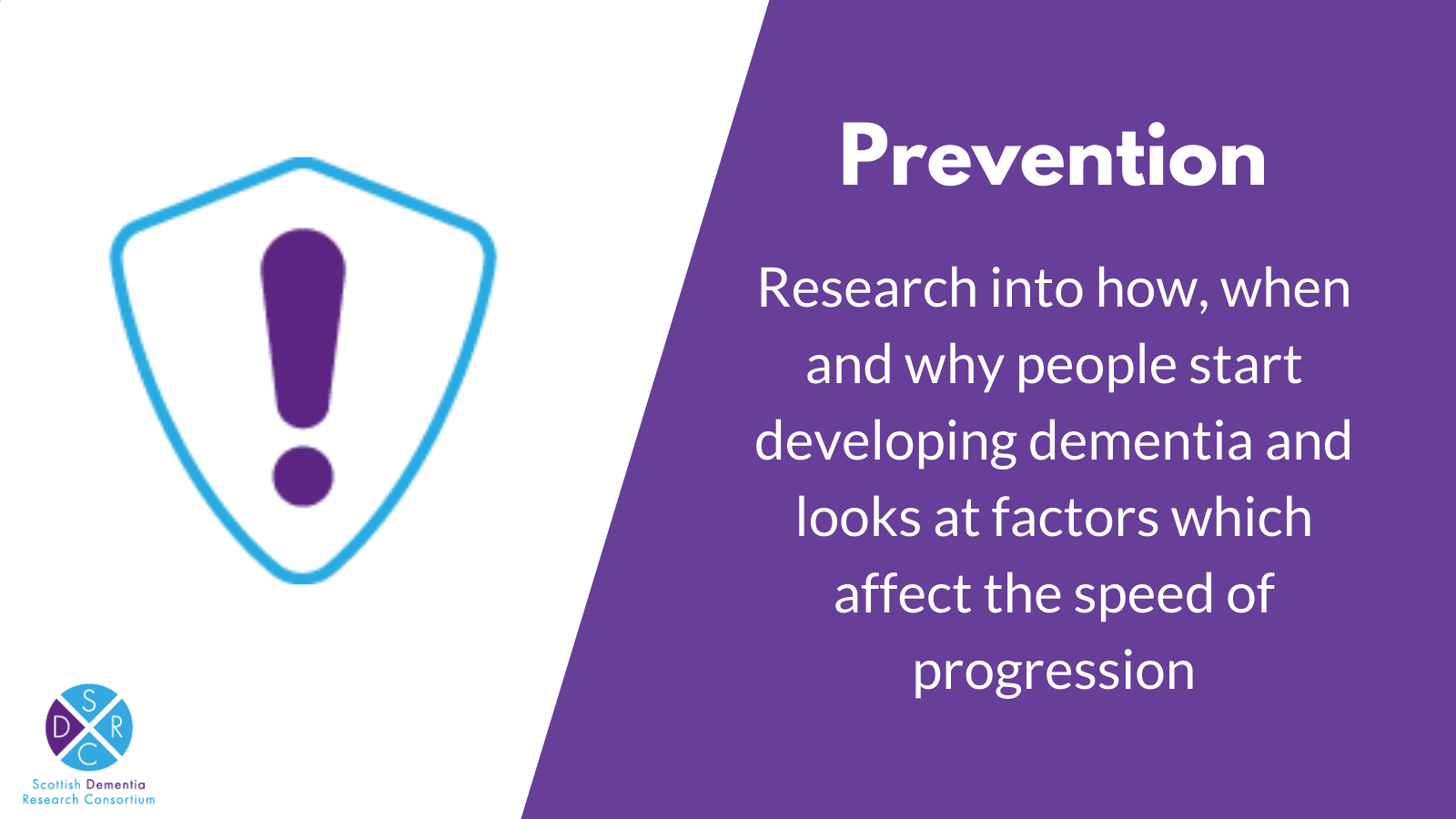Dementia Prevention, is one of the themes of the SDRC and featured in the SDRC Annual Report 2021/22. Theme lead, and SDRC chair, Professor Craig Ritchie, has written the following extract from the report dedicated to the research across Scotland on dementia prevention and brain health. Read this below.
In 2021, the Prevention theme continued to develop its strength in bringing a major output in research activity with rapid translation into clinical practice through Brain Health Scotland. In many ways this globally unique partnership working between science & research, education, clinical practice and public health policy is the reason why Scotland continues to benefit from global attention in the Brain Health and Dementia Prevention space.
This is perhaps most evident in the collaboration with the Davos Alzheimer’s Collaborative and the Alzheimer’s Disease Data Interoperability platform. Within DAC, we are the only country in the world to fulfil what they describe as the ‘triple stack’ of major involvement in their clinical trials programme, global cohort study and transformation in health care readiness (aka Brain Health Clinics).
2021 is maybe best characterised by being a development year of a higher and more robust platform to build on. These foundations have come to fruition in 2022 through the restart of EPAD Scotland, the opening of the world’s first Brain Health Clinic for retired Rugby Players, the launch of a MOOC in Sports and Exercise and attainment of major grants in the sports work from FIFA (£1.3M to University of Glasgow and £500,000 to University of Edinburgh for recruitment of retired players into the PREVENT Programme). While contact sport and dementia risk is a domain in which we are world leaders, the fact that the main population subject to traumatic brain injury is women who are subject to domestic violence or intimate partner violence means that work with this population is crucially important too. A PhD fellowship funded by the Drake Foundation to University of Glasgow marks the start of a major programme of research and clinical care in this area in partnership again with Brain Health Scotland and other stakeholder groups.
In 2022 the theme has also seen success with ongoing funding for Generation Scotland and continued academic output from the Lothian Birth Cohort. Our academic publications across this domain remain strong, influential and impactful.
Examples of our projects in prevention:
PREVENT ECO
The PREVENT Dementia programme has been working to secure funding to enable us to follow-up participants across all 5 PREVENT sites at a 3rd study visit which will be around 7 years since they first joined the study. We are pleased to share that we were successful in a recent grant application to the Alzheimer’s Society and we have now secured funding for clinical and cognitive follow-up of these individuals at our sites in Edinburgh, Cambridge and Oxford. Our next step will be to secure neuroimaging funding along with funding to follow-up participants at our Dublin site.
PREVENT Rugby Football Cohort
The PREVENT dementia team are actively recruiting former elite rugby and football players eager to help shape the future of brain health in the professional sports landscape. This research is imperative to detect biological and psychological factors in mid-life that may predispose a dementia diagnosis in later life. Subsequently, we can pinpoint specific differences in this group compared to the general PREVENT cohort that could minimise the risk of dementia for sports players in the future.
For the future, we are looking at growing our capacity and delivery in Life Sciences as well as working closely with the Informatics theme to interdigitate the Scottish Brain Health Register and Join Dementia Research with Brain Health Clinics and the Electronic Medical Record. This will be a substantial and hopefully transformative piece of delivery where again research in informatics and artificial intelligence will dovetail with clinical care and research participation. Watch this space as we develop tools for decision support and trial participation.

